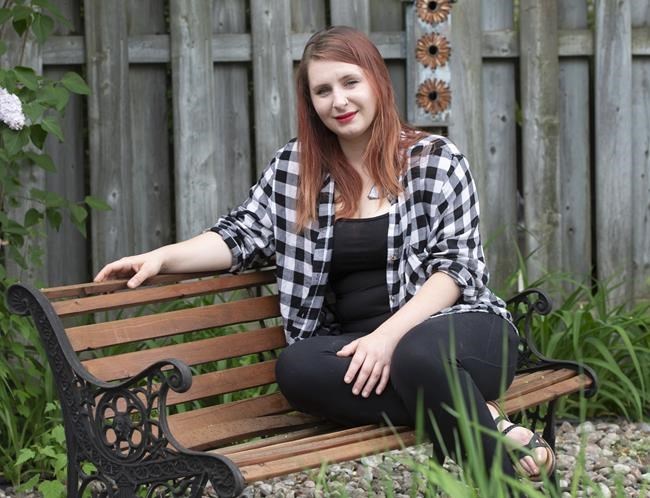MONTREAL — At 13, while most of her friends were playing outdoors, Joany Roussel was home.
Roussel, now 26, said she knew her life was different than most teenage girls: instead of keeping up with the latest gossip at school, she was instead maintaining a household and ensuring her brothers did their homework.
She said she has been taking care of her mother and five brothers for as long as she can remember.
What Roussel didn't understand at the time was that she was a young caregiver. In 2012, there were almost two million Canadians aged 12 to 29 who provided some form of care to a family member or friend, according to the most recent data from Statistics Canada.
"Back then, I would have never thought that this was my role," Roussel said. "I realized I was a caregiver once I moved out of my mother's house and I looked back at all the things I did to help her."
A few years ago, Roussel's mother was diagnosed with bipolar disorder. She said she remembers feeling ashamed and guilty about her family situation, and was reluctant to discuss it with others.
"I could see that my mom was not like others," Roussel said. "When we would do an oral presentation in class to talk about our families, I was afraid people would judge me."
She said she would return home from school in Sainte-Julienne, Que., north of Montreal, and immediately start taking care of her younger brother, feeding and bathing him.
"It had an impact on my studies," she said. "I was very angry at that time, the smallest thing made me jump because I had so much on my shoulders."
A Quebec association that represents caregivers said young workers like Roussel are often invisible in society, and more than 50 per cent of them are at risk of physical and mental health issues because they lack resources.
But the group, called Regroupement des aidants naturels du Québec, is trying to change that.
Mélanie Perroux, president of the caregivers association, launched a multimedia project in May to help guide health-care workers and teachers to recognize the particular situation of these young people.
"Currently, there's a problem … because it is not known and not recognized," Perroux said about the lack of visibility of young caregivers.
Perroux said her project aims to educate adults about how to offer young caregivers support and make them feel comfortable speaking about what is often a deeply personal situation.
"There's not a lot of young people who will raise their hands to said, 'this is my reality,'" Perroux said.
Society tends to lack empathy toward people with any form of disability, which "makes invisible not only the ill person, but also the one taking care of them," Perroux said, adding that young caregivers need to feel supported.
"Imagine being seven years old and you must help your grandfather on the toilet seat," Perroux said. "You will have back problems because of the weight difference."
She said, however, that people need to be careful not to victimize young caregivers. A lot of them, she added, say they feel useful and that caregiving strengthens family bonds.
"We also need to demystify aging and to show that this is not a bad thing, nor is taking care of someone," Perroux said.
Ella Amir with AMI-QUEBEC, a non-profit that helps families manage mental illness, said the first challenge for a young caregiver is to recognize themselves as such. People tend to associate caregiving with adults, she said, adding that anyone who is helping a family member of friend with a disability is by definition a caregiver.
Amir said the narrative surrounding caregiving needs to change, but for her, recognition remains the core problem.
"I don't think it's necessarily considered like something negative," she said of young caregivers. "I think (they're) not being considered, period."
This report by The Canadian Press was first published May 24, 2021.
Virginie Ann, The Canadian Press



